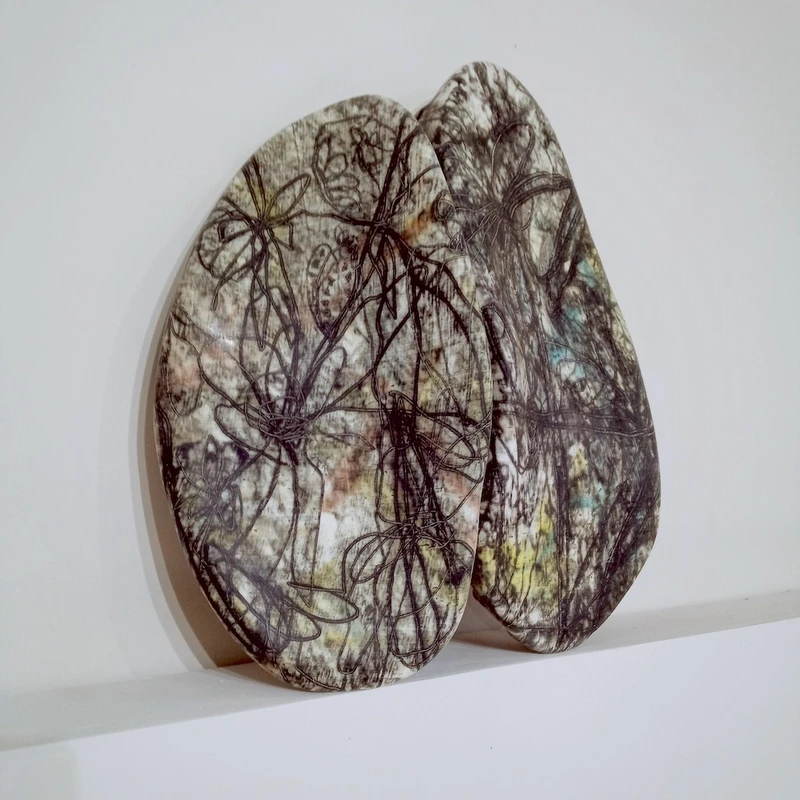Neal Rock: Elegies & Flesh Poems
9 Mar-27 Apr 2024


We are delighted to present the solo exhibition; Elegies & Flesh Poems, by Welsh, US-based artist Neal Rock, his first in over seventeen years in London.
Rock’s work gained attention throughout the 2000s, with an expanded painting practice, making decorative and politically charged silicone paintings that incorporated assemblage, object-making and architectural interventions. In recent years he has introduced line drawing and adapted mono-printing techniques into his practice. While making these works, Rock has explored the poetic form of the elegy, using line as a carrier of emotion and affect within these works.
Elegies & Flesh Poems takes part of its name from an essay by art historian Suzannah Biernoff, on the life and work of artist and educator, Henry Tonks (1862 – 1937). Today Tonks is perhaps best known for his surgical drawings & pastels of WW1 soldiers whose faces underwent reconstructive surgery by one of the progenitors of modern-day plastic surgery, Harold Gillies. Tonks was himself a surgeon and longstanding teacher of drawing and anatomy at London’s Slade School of Art, where he taught painters including Paul Nash and Gwen John.
In her essay Biernoff notes that Tonks referred to his pastels as “fragments of the human”. These depictions of fragmented war-torn faces, are also torn psyches irrevocably impacted by a carnage beyond words however, in these works we find both poetry and resonance. These fragments – suspended within blasted faces and folded reconstructions – potentially become an opening chapter for a form of abstraction that has a foundation in disfiguration. In a recent catalogue essay for MoCA’s Pattern & Decoration survey exhibition, LAXART curator Hamza Walker playfully inverts Clement Greenberg’s notion of homeless figuration, a term used by Greenberg for an emergent abstraction containing floating fragments of representation such as these. And so the question of where abstraction can find meaning and relevance today, a provocation by Walker, is perhaps one of its more pressing challenges.
Tonks was known for his privileging of the haptic as an art educator, his touch is just one of the many places where an ethics of abstraction could take root, face to face with his subjects. These faces carry both human brutality and tenderness and are, in their very dislocation and disfiguration, a home of sorts – a focus on limits and boundaries, as a means to regenerate meaning and value.
For Rock, in these fragmentary sources he finds poetry and the elegiac, and the works in this exhibition exist in this mournful and reflective place. The use of line and the inclusion of drawings, shown in the UK for the first time, underline this form of elegiac abstraction.